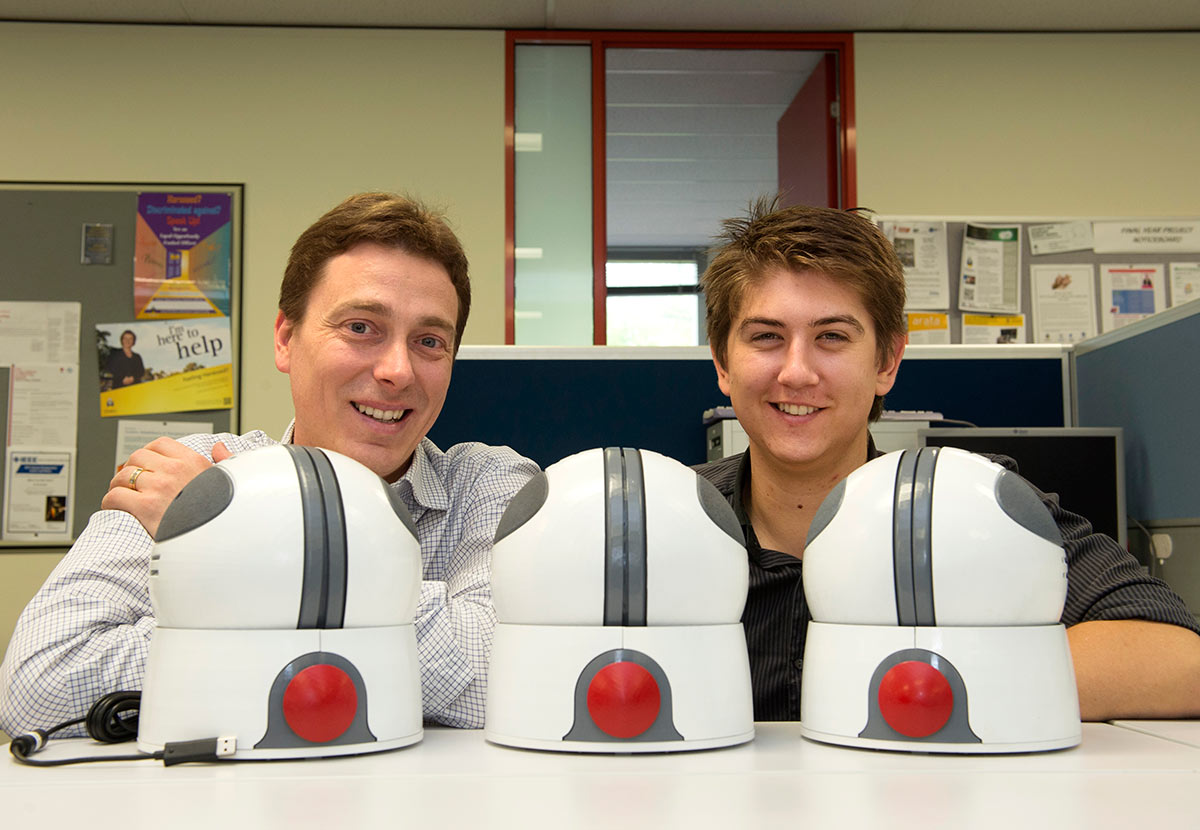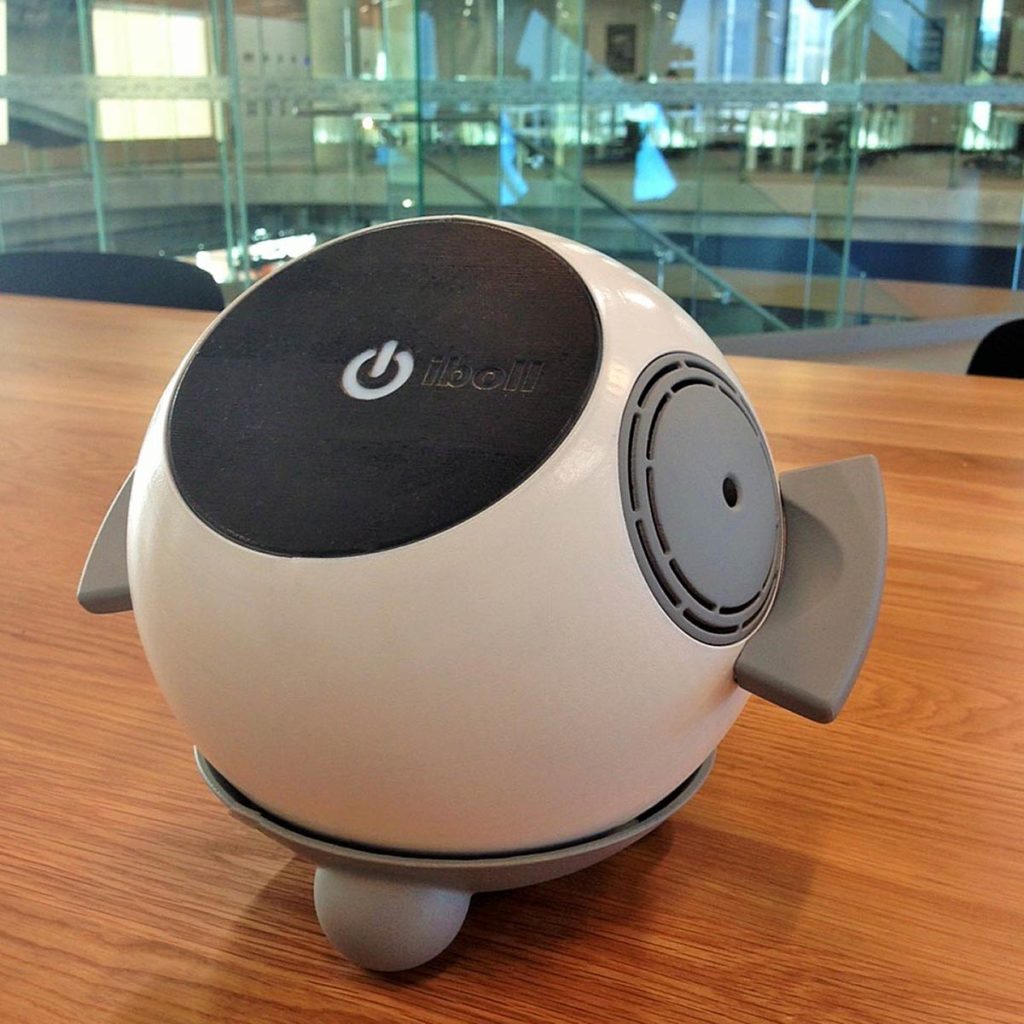
The World Health Organisation has invited a Flinders researcher to talk about his invention at a global forum in Geneva, Switzerland.
David Hobbs, a rehabilitation engineering and lecturer at Flinders University, will speak at the Global Research, Innovation, and Education in Assistive Technology (GREAT) Summit about his research in this fast-emerging field of expertise.
OrbIT, a control device developed by Mr Hobbs and other SA designers and researchers, is a novel user-centred computer gaming system for people with hand impairments, including children with cerebral palsy and stroke patients.
“Our system is accessible, improves hand function, increases children’s social participation, is scalable, and can be translated to other conditions,” Mr Hobbs says.
“People with hand impairments typically avoid using their non-dominant hand, leading to limb neglect,” says Mr Hobbs, a Fulbright Professional Scholar and Churchill Fellow.
OrbIT has won a string of endorsements including the Better Technology Award (prototype category, 2014) and the Australian Rehabilitation and Assistive Technology Association (ARATA) award for ‘developments, improvements and innovations in service delivery to Assistive Technology users’ (2012)
Assistive technology, which groups together assistive products spanning from eye glasses and wheelchairs to sophisticated automated systems, is a critical and cost-effective tool that can enable full participation in daily life for millions of people, according to the WHO forum organisers.
However, only 1 in 10 people in need have access to assistive products and no country in the world has a national policy exclusively focused on assistive technology.
More than 150 of the world’s top researchers, innovators and educators in the field will present at the inaugural GREAT Summit on 3-4 August.
The summit aims to build new research collaborations, accelerate innovative education and certification, and showcase ground-breaking developments in assistive technology.
The GREAT Summit is an initiative of the Global Cooperation on Assistive Technology (GATE), created by WHO in 2014 to spur progress towards a world where everyone in need has access to high quality, affordable assistive technology to lead healthy and productive lives.
Mr Hobbs says the SA-designed device addresses the WHO Global Priority Research Theme 3 of ‘high quality and affordable assistive technology’.
“Following positive trial results and significant end-user interest, we’re focusing our efforts on commercialising the latest innovative version of OrbIT, called i-boll,” Flinders distinguished alumni and PhD candidate Mr Hobbs says.
“i-boll has the same functionality as OrbIT but addresses issues relating to design in manufacture, the ability to interact with commercial games, cost and scalability.”

“Our multidisciplinary research team’s aim was to encourage active use of the neglected hand through fun and meaningful play, capitalising on the inherent desire and motivation people have to play computer games, particularly children and young adults.”
While stroke is the leading cause of disability worldwide, cerebral palsy (CP) is the most common childhood physical disability, affecting more than 34,000 Australians, and more than 17 million people worldwide.
The OrbiT project was a collaborative partnership between Flinders University, the University of South Australia, and the Women’s and Children’s Health Network in Adelaide. It was supported by funding from Flinders University, the Women’s and Children’s Hospital Foundation and the Channel 7 Children’s Research Foundation.
Other SA researchers who worked on the project include Professor Karen Reynolds, Associate Professor Susan Hillier, Associate Professor Ray Russo, Associate Professor Sandy Walker, Dr Brett Wilkinson, Brad Wesson, Max Hughes and Martin Henschke.

